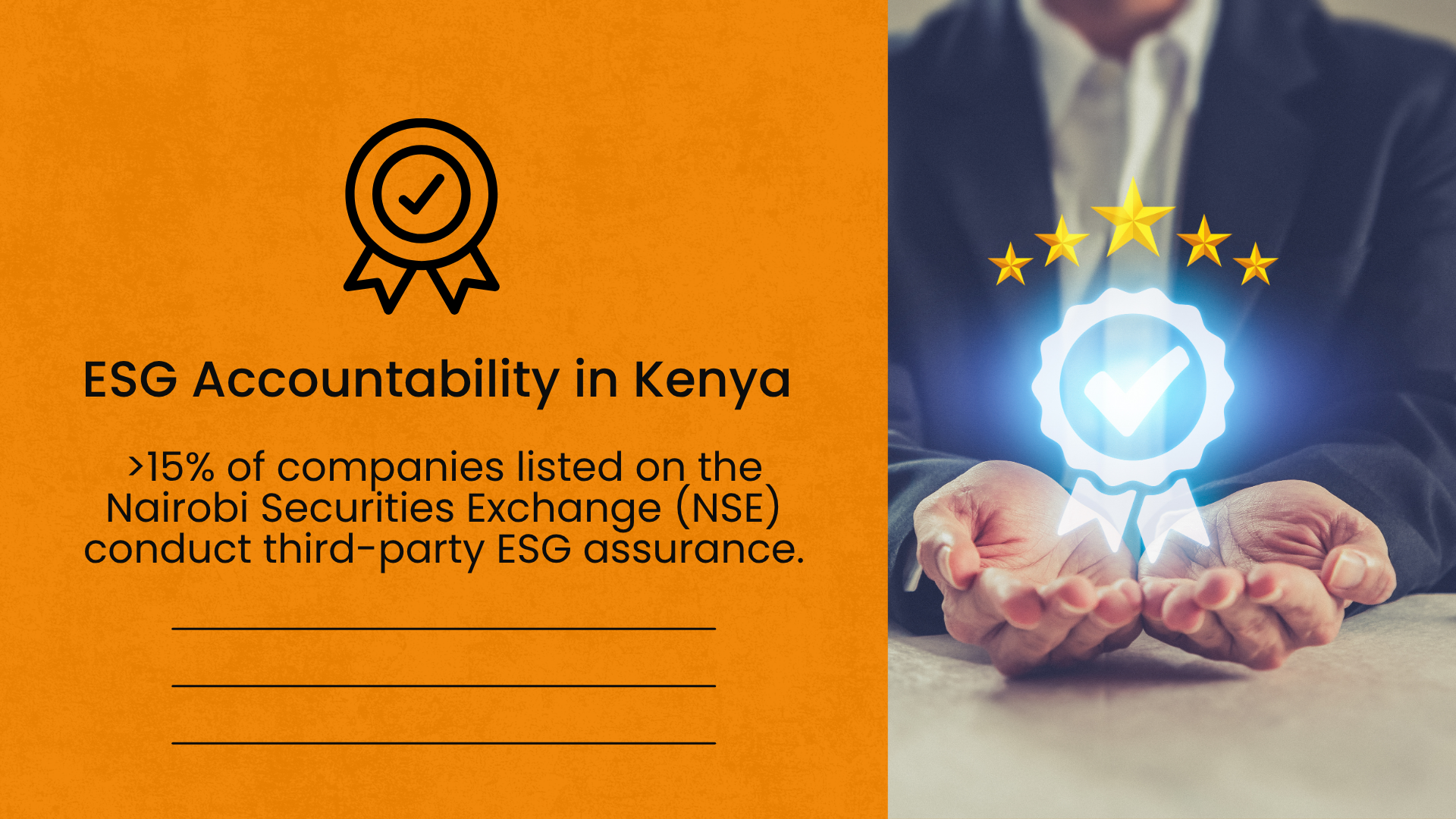Ensuring ESG Accountability in Kenya
Why Kenya Must Prioritize Independent ESG Audits, Verified Disclosures, and Contextual Metrics
As Environmental, Social, and Governance (ESG) principles gain traction across African markets, a critical question must be asked: Who is keeping score—and how credible is the ESG data?
In Kenya, the growing focus on corporate sustainability, social responsibility, and governance ethics is welcome. However, as interest rises, so do the risks of greenwashing, where businesses or institutions misrepresent or exaggerate their sustainability performance. With climate change impacts escalating, inequality deepening, and investor scrutiny increasing, ESG without accountability and verification is not just ineffective—it is dangerous.
Kenya’s regulatory environment for ESG disclosure is still evolving. While some companies publish glossy sustainability reports, few offer independently verified ESG data. The absence of standardized ESG reporting frameworks leaves room for vague claims and selective storytelling. According to a 2024 CFA Society East Africa briefing, less than 15% of companies listed on the Nairobi Securities Exchange (NSE) conduct third-party ESG assurance.
This opens the door to “box-ticking” compliance, where ESG becomes a public relations tool rather than a governance or impact measurement strategy. So, what must be demanded—and who should demand it?
- Investors in Kenya must insist on standardized, verifiable ESG metrics, especially in climate-sensitive sectors like agriculture, manufacturing, and infrastructure.
- Consumers and the public also have a role to play in demanding greater transparency and ESG reporting integrity.
- Regulatory bodies and policymakers must develop stronger sustainability compliance policies, ESG audit incentives, and green finance disclosure rules.
To bridge the credibility gap, independent ESG audits and third-party assurance must become the norm—not the exception. Just as financial audits protect shareholder value, ESG audits protect social and environmental value, enhance risk management, and improve decision-making.
In Kenya, leading firms and parastatals are beginning to adopt global ESG frameworks such as:
- GRI (Global Reporting Initiative)
- IFRS Sustainability Standards (formerly SASB)
- TCFD (Task Force on Climate-related Financial Disclosures)
Yet ESG assurance remains limited to a few pioneers.
It’s important to recognize that Africa’s ESG landscape differs significantly from that of Europe or the U.S. Our indicators must reflect local priorities—such as:
- Climate resilience in arid and semi-arid lands (ASALs)
- Youth employment and skills development
- Gender equity in the informal sector
- Community ownership in land and water governance
Off-the-shelf global ESG metrics often miss these nuances. Context-specific ESG KPIs are essential for credible impact measurement, investor confidence, and local development alignment.
The way forward in Kenya must include:
- Mandatory ESG disclosures based on existing tools like the NSE ESG Disclosure Guidance Manual.
- Alignment with ISSB, GRI, and regional ESG frameworks like the Pan-African ESG Reporting Standards currently under development.
- Capacity building to train more ESG assurance professionals, auditors, and evaluators.
- Incentives for third-party assurance—such as tax relief or regulatory benefits for independently assured ESG reports.
Public–private partnerships will be crucial—linking government, business, academia, and civil society to co-develop sector-relevant ESG metrics and enforce minimum disclosure standards.
Accountability is the backbone of ESG. Without independent verification, data integrity, and locally relevant ESG indicators, ESG risks becoming performative rather than transformative.
Kenya has an opportunity to lead the region in building a credible, contextual ESG accountability ecosystem—one rooted in transparency, assurance, and authentic sustainability impact.
Let’s raise the bar—making ESG not just about looking good, but about doing good—and proving it.
By: Amunga Miriam – ESG Advisor








